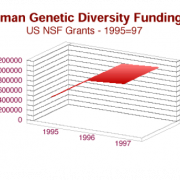Pinning the Tail on the Ostrich: The Australian PBR Scandal
Submitted by ETC Staff on
RAFI's study of 118 Plant Breeders' Rights claims exposes a predatory pattern of biopiracy supported by UPOV and by national legislation in several OECD countries, especially Australia.

